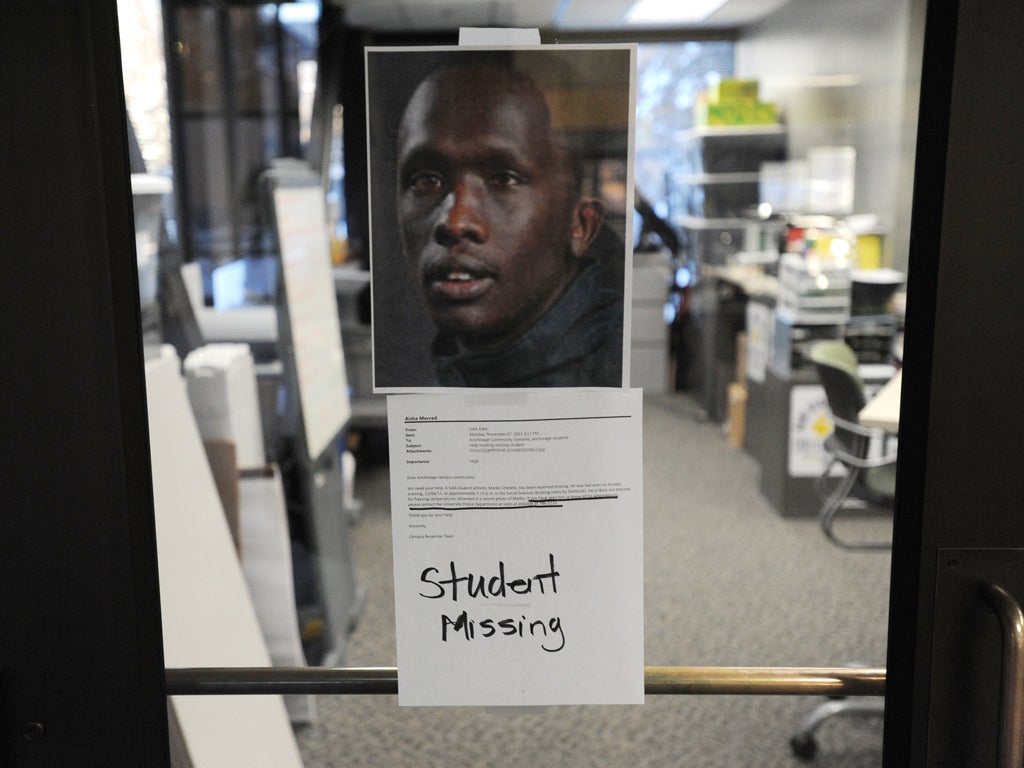A Kenyan athlete who disappeared for 48 hours in snowstorms that hit the state of Alaska is recovering in hospital after losing both of his feet to frostbite.
Marko Cheseto, a 28-year-old long-distance runner, wore only light clothing and was not carrying a mobile telephone when he went missing from the campus of the university in Anchorage where he studied.
He was rescued two days later, after finding his way to a local hotel. Doctors say he was suffering from severe hypothermia and was barely able to speak. Though they had to amputate the athlete's feet, they hope to be able to save his hands.
In a remarkably upbeat statement released by the University of Alaska, Anchorage, Mr Cheseto thanked both his rescuers and the volunteers who had searched for him following his disappearance on 6 November.
"As some may know, I've been going through a lot of personal issues," he said. "While I am still recovering – both physically and emotionally – I will do my very best to give back... I sincerely apologise for any problems that I might have caused." Mr Cheseto was among several elite Kenyan athletes who had been recruited by the university in an effort to build one of the nation's top cross-country teams.
He won several all-American student titles, and was due to graduate with a degree in nursing next year. But friends said he'd been deeply affected by the recent suicide of team-mate, William Ritekwiang, a childhood friend who came from the same town, Kapenguria.
Mr Cheseto was wearing trainers, jeans, and a light jacket when he went missing. During the two days he was away, temperatures dropped to -12C, and a foot of snow fell. At this time of year, Alaska gets between five and six hours of daylight, further hindering search efforts. He was rescued after stumbling into a hotel car park.
Subscribe to Independent Premium to bookmark this article
Want to bookmark your favourite articles and stories to read or reference later? Start your Independent Premium subscription today.


Join our commenting forum
Join thought-provoking conversations, follow other Independent readers and see their replies